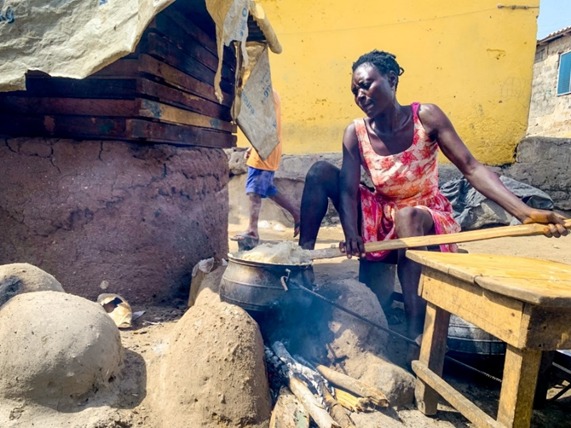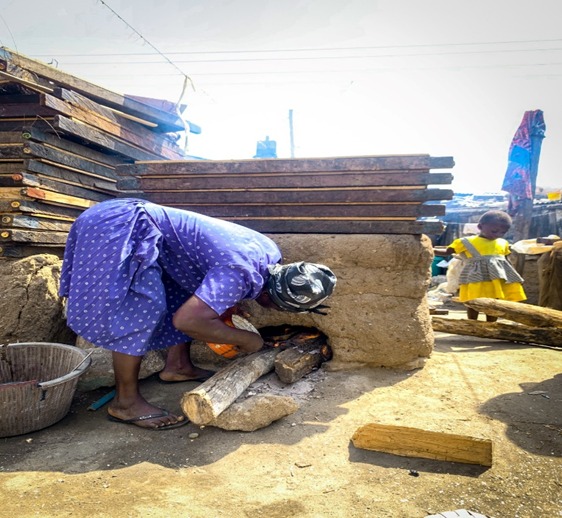Roughly 49.58 % of people on earth are women. Therefore, it is not a smart business decision to disadvantage women who can contribute towards the human resource capital needed for a just energy transition.
Regardless of how effectively national energy transition systems are designed to function, growth and acceleration toward global targets will be constrained without the inclusion of the remaining asset. How can an aeroplane designed to run on two engines, deliberately decide to fly with just one engine? This is suicidal.
Generally speaking, energy democracy refers to an emerging social movement that redefines energy consumers as innovators, designers, and critics who participate in decisions throughout the entire value chain of this sector, from production to use.” This concept describes an ideal political goal in which the citizens are the recipients, stakeholders (as consumers/producers), and account holders of the entire energy sector policy. The discussion of energy democracy in this article is however restricted to clean cooking energy and the necessity of including women in the process of global transition.
Transitioning the energy sector is changing not only energy technologies and economics, but also physical geographies, social meanings, and the political organisation of energy production, distribution, and consumption. While it is acknowledged that including gender issues in global climate, policies is crucial for establishing the agenda, actually putting policies into action is much harder. In fact, the energy transition processes at the heart of efforts to combat climate change are not only challenging from a technical and economic standpoint, but also from a deeply political, gendered, and democratic standpoint.
Given that changes in energy systems frequently coincide with power disparities related to politics and policymaking, the transition phase is a favourable time to promote energy democracy through gender mainstreaming. Technocratic perspectives are frequently used to examine energy policy and policy-making processes, and attempts to incorporate social and economic analysis are frequently restricted to looking at energy prices, employment issues, and energy poverty.
Perhaps, the fact that ” Engineers, Scientists, Bureaucrats and Economists dominate energy policy design and implementation” could be part of the explanation for the lack of emphasis on the social dimension. Energy justice and other justice-related issues are linked, as are energy justice and policy making; however, the topic of gender mainstreaming in the process of making decisions and crafting policies for just transitions has not yet been thoroughly addressed.
Beyond this path requires an awareness of and deliberate action to reduce social injustices linked to unfair energy cultures and practices that support gender blindness. Both in the global North and the global South, gender blindness in energy policy and research has been noted as a breeder of energy access inequalities. Hence, focusing on gender issues is likely to hasten access to clean energy during the energy transition.

A paradigm for creating truly just energy systems is provided by the gender mainstreaming perspective on energy, which provides an essential and underappreciated framework for understanding what keeps countries mired in unsustainable energy cultures.
By including women in decision-making across the entire value chain through energy democracy, gender mainstreaming can and does make judgments about energy by enacting more just energy systems. Honing the role of gender mainstreaming in ensuring energy democracy does not necessarily mean institutions must fall into relativism and celebrate all energy practices equally in order to embrace the diversity of practical concepts in the energy sector.

More often than not, we underestimate how crucial the business aspect of gender mainstreaming in energy democracy issues is. Despite being the driving force behind household cooking, women are surprisingly underrepresented in engineering, science, social, economic, and environmental aspects of cooking. In general, what is needed in this discussion is an army of workers. This implies that involving both men and women will increase the economic success of nations and sectors that have recognized the importance of equity in energy transition.
In actuality, when we limit women’s ability to participate in energy transition issues, businesses and organisations may not be able to have a sufficient economic impact. If we only consider the clean cooking enclave, women make nearly 95% of all decisions regarding stoves in global households. Just think about the difficulties that an organisation might face if the frontline workers who are familiar with every meal’s preparation were to be excluded. Practically, no one can beat them in knowledge in terms of how quickly and effectively they want their food to be prepared on a stove.
It is only rational and beneficial to all when, women develop into the industries’ best change agents and marketing personnel, offering user-friendly designs and solutions for the cooking energy needs upon their inclusion in relevant subjects. As a woman, majority of us naturally gravitate toward promoting goods or technologies that complement our feminine strength.
Too frequently, the energy sector as a whole, from business to policy making, leaves out women as energy consumers, decision-makers, or significant forces behind. This is not appropriate for energy democracy-based just energy transition worldwide. However, when a gender perspective is given priority, clean energy initiatives and regulations can promote community development that leaves no one behind.















